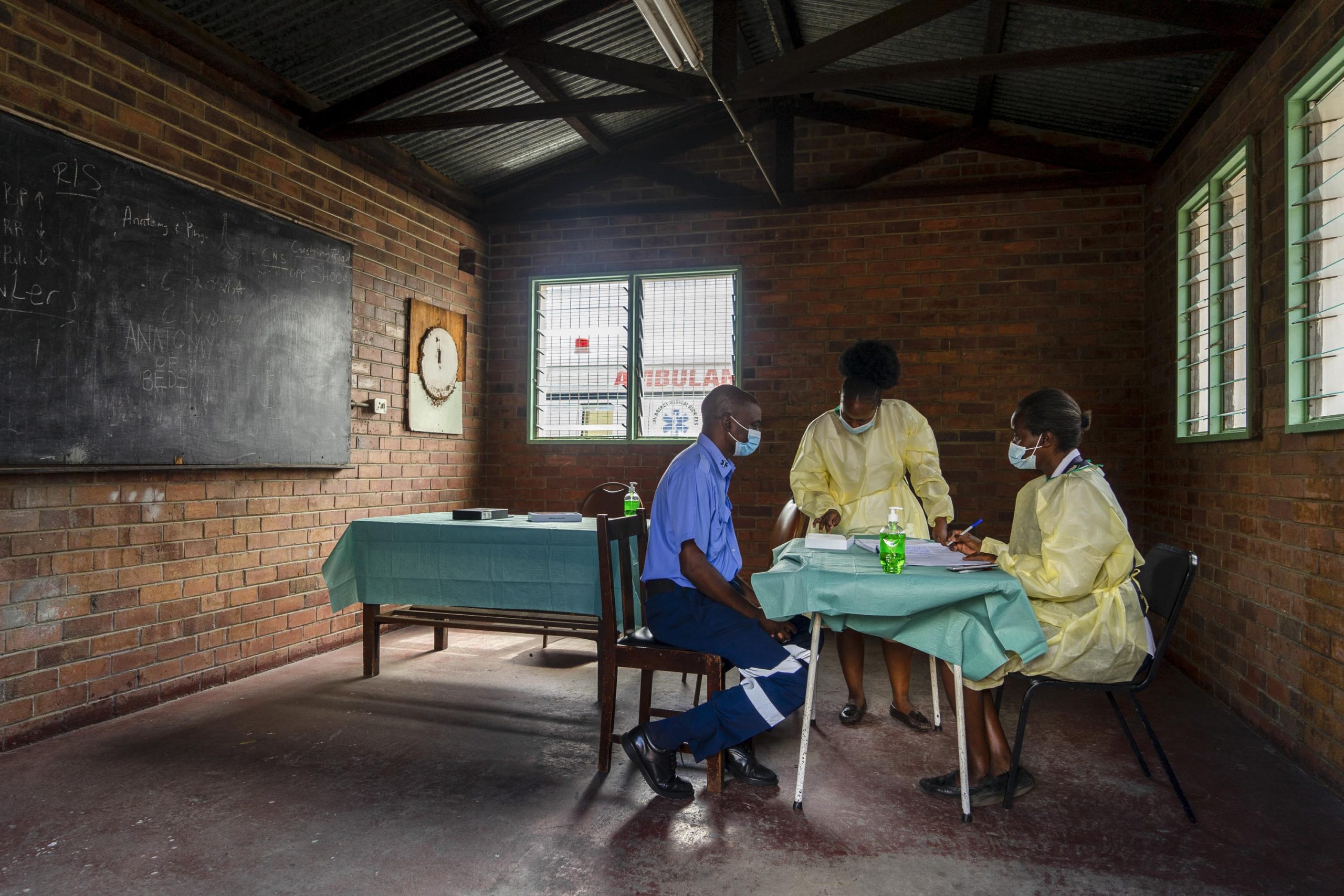The urgency of universal healthcare
Giving everyone access to quality medical treatment can no longer be treated as an unrealisable dream. In these dangerous times, it is simply vital to make it a reality.
Author:
30 April 2021

Desperate to attract tourists amid the sector’s global decline during the Covid-19 pandemic, the Maldives is offering a surreal new travel package. For just R16 000, visitors can receive a vaccine along with their island holiday.
This “vaccine on arrival” scheme highlights many of the social contradictions and inequalities of the post-Covid world as well as the broader inequalities of health under capitalism. With “vaccine tourism” also appearing in places like the United States and Dubai, we are seeing intensified class stratification based on access to medication and treatment.
President Cyril Ramaphosa announced an ambitious plan earlier this year to give mass vaccinations to South Africa’s entire adult population by the end of 2021. However, the rollout is occurring at a creeping pace, which respected vaccinologist Shabir Madhi has described as an “absolute disaster”.
Related podcast:
The South African government was widely praised for its quick – though authoritarian – response to the initial Covid-19 outbreak last year. But much of this good dissipated rapidly owing to mismanagement, the violent enforcement of heavy-handed and arbitrary lockdown regulations, and scandals such as the looting of personal protective equipment funds. The whole fiasco was a stark indictment of the post-apartheid state’s failure to build a robust public healthcare system for the impoverished majority.
In recent years, the government has begun work towards a National Health Insurance programme that is intended to lead to universal healthcare for all. This is a welcome development. The pandemic has shown that countries where healthcare is regarded as a public good accessible to all can respond much more effectively than those where medicine is treated as another opportunity for private profit.
Possibilities and realities
If other lower-middle-income countries like Thailand and Cuba can afford universal coverage, there is no reason that South Africa cannot. The country has the skills, resources and infrastructure to develop an excellent public healthcare system.
However, this will require far greater scrutiny and public oversight to guard against corruption and maladministration. The media, trade unions, grassroots organisations and other affected parties need to be vigilant to ensure that the new legislation is not used as another opportunity for rent-seeking by crooked politicians and service providers.
The Life Healthcare Esidimeni tragedy, in which 143 psychiatric patients died while supposedly in the care of the Gauteng government, shows that maladministration in the healthcare system literally kills.
Related podcast:
In light of such scandals, many in the South Africa media are calling for private healthcare companies to step into the vaccine rollout gap. But while they can certainly help to speed up vaccinations, it is not a viable long-term option for a country in which millions simply cannot afford private healthcare.
Rather than being an efficient, streamlined alternative to public healthcare, private medical aids are often overpriced and offer limited coverage, even to those who can afford them. A report by the Competition Commission in 2019 revealed that the fewer than one in five South Africans who are on private schemes are paying more than ever but receiving less quality care in return. Private companies like Discovery have capitalised on the government’s failure to provide adequate public healthcare, becoming monopolies because many people are sceptical of the state’s capacity to provide treatment.
The global experience of the past year has shown that healthcare is too important to be left to market mechanisms. Wealthier northern countries have been stockpiling vaccines – what is commonly termed vaccine nationalism is, more accurately, vaccine apartheid.
Profit over probity
The perverse logic of pricing means South Africa is paying almost triple per dose the amount paid by European countries for vaccines. Pharmaceutical companies are desperate to wring every last bit of profit from the vaccines, regardless of the disastrous consequences.
As Aragorn Eloff wrote in New Frame earlier this year, a rational response to Covid-19 would focus on the common good. There is no technical impediment to pharmaceutical resources being used quickly to manufacture free vaccines on a global scale. However, the logic of intellectual property and copyright mediated through imperial power relations means that it will be many years before Covid-19 is vanquished, if ever.
Related article:
Treating vaccines as a public right could ensure a quick return to some semblance of pre-Covid 19 normality and help boost economic activity, which has been devastated in so many parts of the world. But the self-serving rent-seeking of the private medical complex and complicit politicians means the likelihood of a grim decade in which some countries recover while others are left in virus-wracked limbo.
Capitalism does not just profit aggressively from health crises – it helps to cause them. From the chronic health issues caused by unchecked industrial pollution to the mental illness rooted in the cruelty and stress of modern life, the system is making us sick.
As Mike Davis writes in The Monster Enters: Covid-19 and the Plagues of Capitalism, the global economy is fundamentally unsustainable. The relentless pursuit of profit is causing ecological havoc and creating the conditions for even worse plagues in the near future. It is sobering to realise there is a high likelihood that Covid-19 will not be the most severe pandemic we see in our lifetime.
We have a system that is disastrous for the health of the planet and fails to meet the needs of the vast majority. But it is very good at pushing profits upwards to the super-rich.
Necessary and urgent
Covid-19 has shown that universal healthcare is not a utopian pipe dream but a pragmatic goal that should be achieved. The pandemic has exposed how closely interconnected every aspect of contemporary society truly is. Living without healthcare in dangerous and unsanitary environments is both dehumanising for individuals and communities and a public health risk to society as a whole.
Providing universal healthcare, along with clean, safe public housing and spaces, is the best possible insurance against pandemics and other viral shocks. However, years of neoliberal ideological pacification have spun a myth that these are utopian, rather than sensible and pragmatic, goals. The product of this commodification of health is seen in the US, where the state can seemingly afford to bail out the rich and bomb small countries but cannot commit to basic national healthcare.
Related article:
Historically, universal healthcare has enjoyed massive popular support – but it had to be won through wide and sustained political organisation and struggle. In a country such as Sweden, today feted for its health system, unions and working-class organisations fought militantly through the early 20th century to build an adequate welfare system. The same is true with the National Health Service in the United Kingdom.
Covid-19 has underscored the necessity of healthcare for all. In a world that faces increasing environmental and social disasters, universal healthcare is a matter of moral principle and an urgent and necessary response to dangerous times.
In South Africa, we need to organise and strive for both an excellent public healthcare system and a state that is honestly orientated towards the public good. Without the latter, the former will be impossible.




